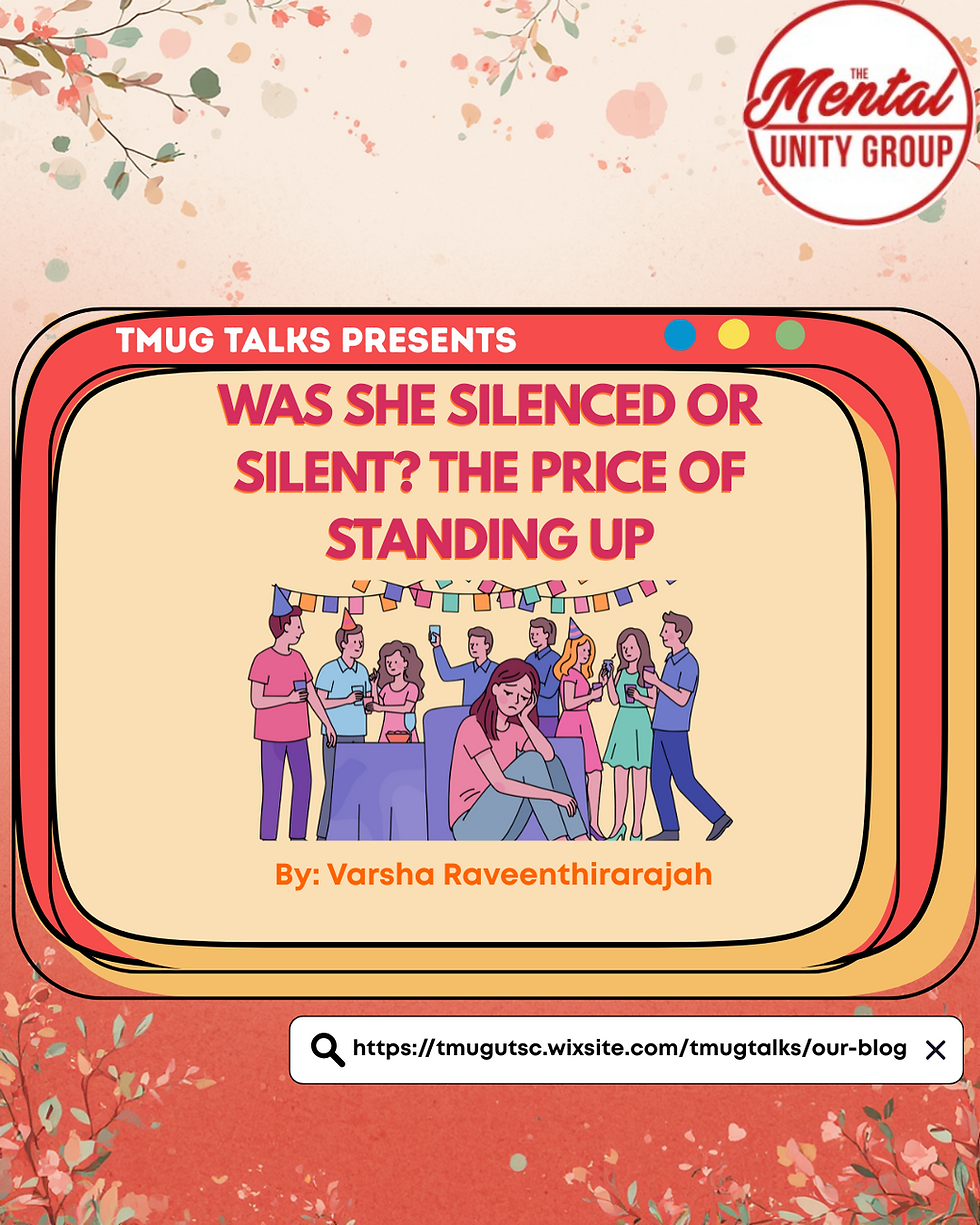Care for the Carers
- Frankie Chan

- May 29, 2021
- 3 min read

It goes without saying that COVID-19 has strained our healthcare system in unprecedented ways. Having endured a pandemic situation for over a year now, healthcare professionals are feeling stretched beyond imagination. Often relied on, for their expertise and leadership within the context of medicine, doctors hardly receive any attention to their very own health, let alone mental health. The pandemic has certainly brought this issue to light, with front line workers’ health at higher levels of risk than ever before. It is due time that we create some dialogue about mental wellbeing for our doctors, and return the compassion they exercise on a daily basis.
Doctors are in a unique place, when it comes to this kind of discussion. As practitioners of health, they have a prominent attitude of overlooking their very own issues. Why is that? Are they too focused on the wellbeing of others? Is their extensive understanding of the healthcare system’s faults enough to deter them from pursuing action? This is a tough question to answer, and most likely has an array of reasons to explain its complexity. Perceptions play a role as stigma has been noted to be a strong factor, where these professionals believe there will be shame and career repercussions for reaching out. After all, doctors are expected to be the leading symbols of health in our society - how would it feel to look sick as a doctor?
If this is the way doctors feel, then we are setting and molding dangerous precedents for future generations to come. Given the severity of COVID-19, mental health is at greater risk than ever before for these individuals. For them, the world is watching. The stakes are high, and the standards are expected to match. Granted, this is the obligation that many of these healthcare professionals have sought to commit their lives for, but we must be careful treading these waters to prevent burnout.
Moral injury is another prominent challenge during these times. With dwindling resources and the general risk of contracting the illness among many other fears, doctors are faced with many difficult decisions to make on a daily basis regarding patient care. When one is forced their hand on choosing an option that doesn’t align with their morals, they experience moral injury. It’s not hard to see how an accumulation of these discordant decisions can affect an individual’s psyche and character over time.
This dilemma clearly presents itself in the many ways discussed above, but can be answered with a greater focus on supporting our doctors just as much as patients, in these troubling times. For many in the healthcare field, self-care has always been a controversial topic and difficult to realistically attain. However, in this COVID world, our societal leaders must take concrete steps to increase care for the carers. Paid sick leave. Continued recognition of our front-line heroes. Implementing workplace mental health initiatives, like Trauma Risk Management and Mental Health First Aid. Creating a sustainable open culture for mental health discussion. From a practical standpoint, these actions may not appear as immediate priorities, but certainly deserve just as much attention as enhancing dimensions of patient care. Raising this dialogue is, however, a worthwhile start.
Source:
Galbraith, N., Boyda, D., McFeeters, D., & Hassan, T. (2020). The mental health of doctors during the COVID-19 pandemic. BJPsych bulletin, 1-4.





Comments